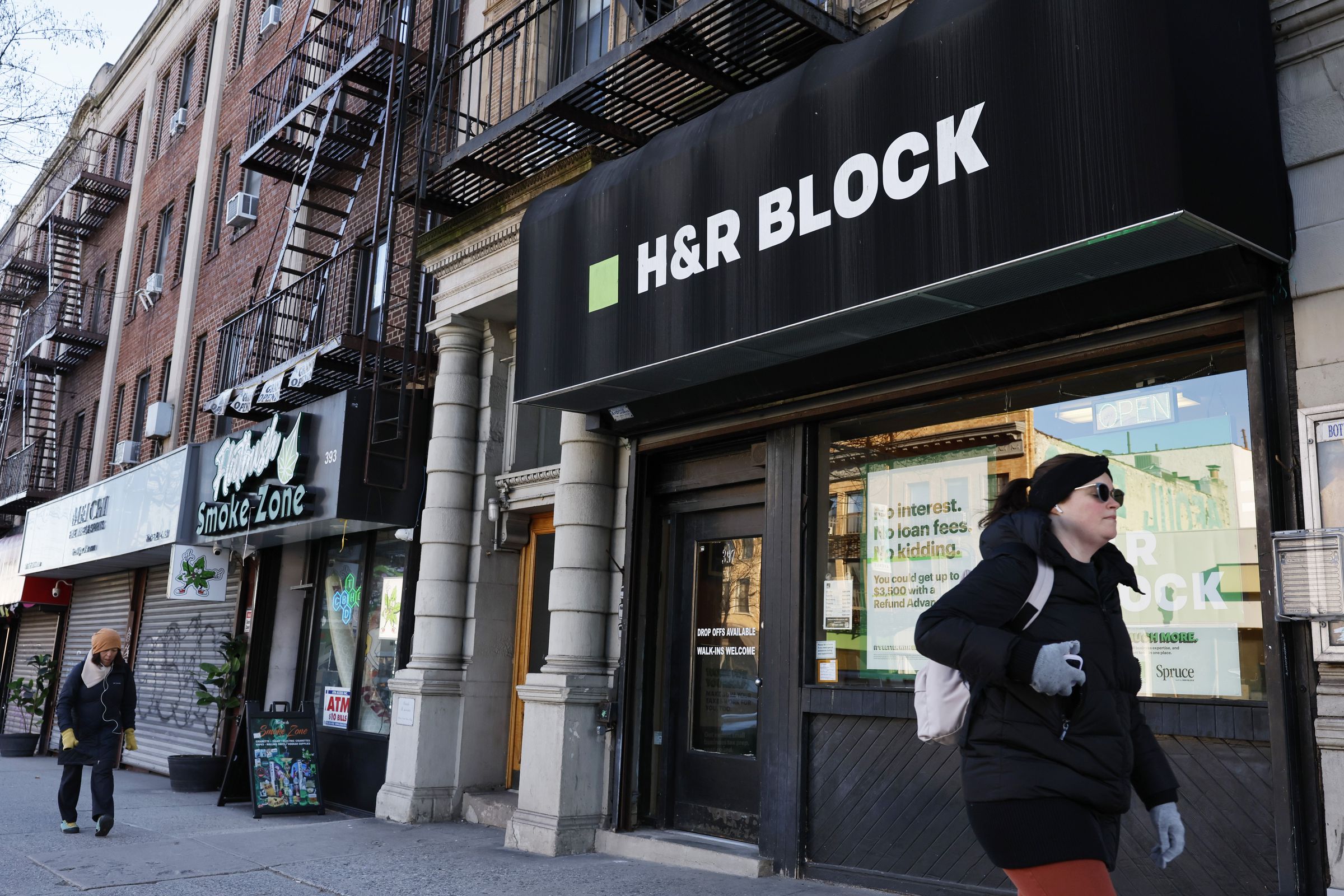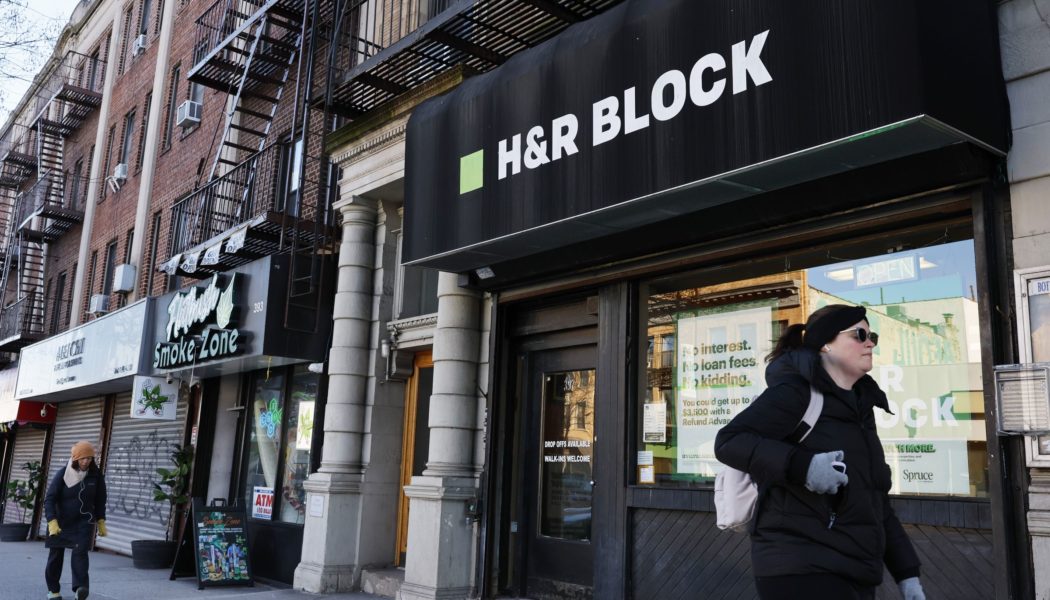H&R Block gave customers the runaround to downgrade services but ‘seamlessly’ let them upgrade, the FTC alleges.
Share this story

The Federal Trade Commission is taking action against tax prep company H&R Block for allegedly wasting consumers’ time and money. The company deceptively marketed its services and made them difficult to downgrade, the FTC claims in an administrative complaint issued Friday.
“H&R Block designed its online products to present an obstacle course of tedious challenges to consumers, pressuring them into overpaying for its products,” FTC Bureau of Consumer Protection director Samuel Levine said in a statement.
The administrative complaint is similar to a lawsuit but results in proceedings before the FTC’s in-house administrative law judge. Findings can ultimately be appealed to a federal court.
The agency alleges that H&R Block steered customers to higher-cost online tax filing products, even when they didn’t need the extra forms included in those offerings. Even when customers later realized they bought a more expensive product than they needed, the FTC alleged, “H&R Block presented them with a series of time-consuming challenges when attempting to downgrade after already spending substantial time entering their tax information.”
H&R Block would basically give customers who tried to downgrade the runaround, according to the FTC — prompting them to call or chat customer support and then deleting all of their tax data so they needed to start over. This creates “a significant disincentive to downgrading,” the FTC wrote in a press release. Meanwhile, H&R Block moves customer data “seamlessly” when they wish to upgrade, the FTC alleges.
The company also deceptively marketed its tax prep services as “free,” even though many customers aren’t eligible for the free services, according to the FTC.
It’s not the first time H&R Block has been accused of steering customers to more expensive products. In 2019, a ProPublica investigation found it was among several tax prep service providers that kept Google from showing its free offering in search results.
The company also caught the FTC’s attention last year when the agency warned five tax prep services that using consumer data for other purposes, like advertising, could result in civil penalties if they don’t first get consent. That notice came after a Markup investigation found that several companies had sent sensitive financial data to Facebook through its advertising pixel. A spokesperson for H&R Block said at the time the company “regularly evaluate[s] our practices as part of our ongoing commitment to privacy, and will review the information.”
The commission, which is currently made up of Democrats, voted 3-0 to issue the complaint.
H&R Block’s chief legal officer, Dara Redler, tells The Verge in an emailed statement there are “multiple mechanisms” customers can use to downgrade their products “while ensuring the preparation of accurate tax returns.”









